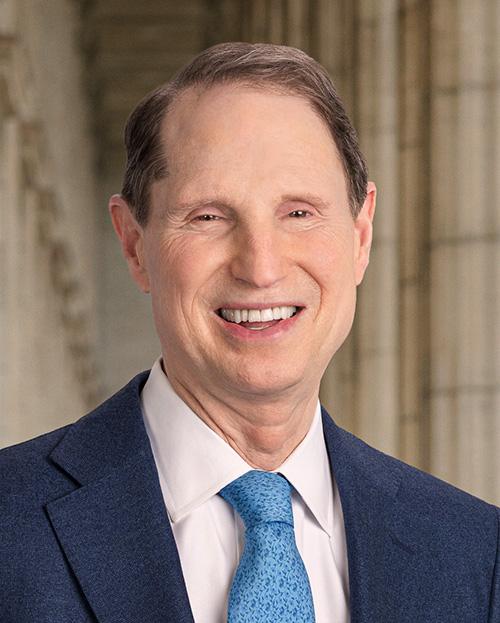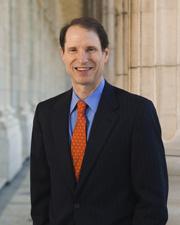In a pivotal moment for environmental policy, an Oregon senator is stepping onto the national stage to challenge a recent decision by the Trump management that threatens to roll back protections against plastic pollution in the nation’s treasured national parks. As the fight for ecological preservation intensifies, the senator’s actions underscore a growing urgency to address the pervasive issue of plastic waste that undermines both natural beauty and wildlife habitats. With passionate advocates on both sides, this unfolding battle not only highlights the complexities of environmental governance but also reflects the profound relationship between local interests and national policy. As the senator takes a stand, the broader implications for conservation and public health in our beloved outdoor spaces come to the forefront, sparking a crucial dialog about the future of our national parks and the legacy we leave for generations to come.
Oregon Senator’s commitment to Protecting National Parks from Plastic Pollution
In the face of the Trump administration’s rollback on regulations aimed at reducing plastic use in national parks, the commitment of Oregon’s Senator remains steadfast. Advocating for the protection of these iconic landscapes, the Senator argues that preserving the natural beauty and ecological integrity of our parks is paramount. The presence of plastic waste not only detracts from the scenic vistas but also poses significant risks to wildlife and ecosystems. This initiative aligns with a broader movement to address the environmental crisis stemming from single-use plastics,which have become a pervasive element in many natural settings.
To tackle this issue, the senator has outlined several key measures that could be implemented:
- Strengthening Legislation: Propose new laws to limit plastic production and enhance recycling efforts within park boundaries.
- Public Awareness Campaigns: Launch educational programs to inform visitors about the impacts of plastic pollution and promote sustainable practices.
- Collaboration with NGOs: Partner with environmental organizations to develop cleanup initiatives and advocate for eco-kind alternatives.
With these strategies, there is hope to not only reverse the harmful policies but also to foster a culture of sustainability that honors the heritage of Oregon’s recreational spaces.

Understanding the Impact of the Trump Administration’s Policy reversal
The recent policy reversal by the Trump administration regarding plastics in national parks has stirred significant debate among environmentalists and lawmakers alike. Some argue that these changes smoothed the path for increased plastic usage in these pristine areas, risking the ecological balance and beauty of natural landscapes. The implications of such a shift extend beyond mere aesthetics; it encompasses the health of the wildlife, the integrity of ecosystems, and the overall mission of conservation. Lawmakers, like the Oregon senator leading the charge against these changes, emphasize the importance of maintaining existing protections designed to limit plastic waste in these treasured parks.
Opposition to the reversal also highlights the broader consequences for community health and climate change initiatives. By allowing plastics to proliferate within national parks, the administration jeopardizes not only local environments but also public opinion regarding wider environmental policies. Key points of contention include:
- Increased pollution: The presence of plastic waste can lead to serious repercussions for wildlife.
- Reduced biodiversity: Ecosystems could suffer from the toxic effects of plastic breakdown.
- Public sentiment: Many communities rely on these parks for tourism and recreation; harmful practices could deter visitors.
To further illustrate the consequences, the following table summarizes key statistics related to plastic pollution in national parks:
| Study Year | Plastics Found (Tons) | Wildlife Affected |
|---|---|---|
| 2018 | 25 | 150 species |
| 2019 | 40 | 200 species |
| 2020 | 60 | 300 species |
Collectively, these figures underscore the urgency for policymakers to reassess the direction taken and advocate for stricter measures to safeguard our national treasures from the pervasive threat of plastic waste.

Advocating for Sustainable Solutions in Park Management
the recent efforts by an Oregon senator highlight a growing movement advocating for sustainable practices in our national parks. The reversal of regulations concerning plastic usage in these protected areas has raised concerns among environmentalists and park advocates alike. By challenging the Trump administration’s rollback on these vital protections, the senator emphasizes the need for accountability and responsibility in managing public lands, ensuring they remain unmarred by pollution and waste. This push not only addresses environmental issues but also promotes a culture of conservation among visitors and stakeholders.
Advocates are calling for a collaborative approach to park management that includes local communities, conservation groups, and governmental organizations. Initiatives aimed at reducing plastic pollution could involve various strategies,such as:
- Implementing stricter regulations on single-use plastics
- Promoting the use of biodegradable materials
- Encouraging recycling and waste reduction programs
- Increasing public awareness through educational campaigns
Through these measures,the focus can shift to creating sustainable solutions that prioritize the integrity of our national parks while providing a better experience for future generations.

Engaging Communities in the Fight Against Plastic Waste
The fight against plastic waste is not just a government initiative; it requires the active participation of local communities to make a significant impact. In Oregon, grassroots organizations are joining forces with policymakers to educate residents about the dangers of plastic pollution in national parks. By hosting workshops and engaging in community clean-up events, these groups foster a sense of stewardship among citizens, encouraging them to take proactive steps in minimizing their use of single-use plastics. Some of the strategies being implemented include:
- collaboration with local schools to develop educational programs focused on sustainability.
- creation of neighborhood councils to discuss and enforce local policies aimed at reducing plastic waste.
- Partnerships with local businesses to promote eco-friendly alternatives and practices.
Engagement goes beyond education; it’s about creating a culture of responsibility towards the environment. Recent initiatives highlight the need for community leaders to spearhead efforts in policy advocacy. Local advocates are making their voices heard in meetings with state officials, pushing for stronger regulations against plastic use within protected areas. These efforts frequently enough encompass:
- Petitions to support legislation that bans plastic bags and straws.
- Informational campaigns through social media to raise awareness of the issue.
- Organized rallies that unite various demographics for a common cause.
| Community initiative | Description |
|---|---|
| Plastic Reduction Workshops | Hands-on sessions teaching sustainable practices. |
| park Clean-Up Days | Community gatherings to physically remove trash. |
| Local Eco-Fairs | events showcasing green products and services. |
Closing Remarks
the ongoing battle led by Oregon’s senator against the Trump administration’s reversal on plastic regulations in national parks underscores the importance of safeguarding our natural treasures. As discussions continue, it is vital for communities, conservationists, and policymakers to unite in advocating for sustainable practices that protect our environment for future generations. Amidst the clash of policies and priorities, the commitment to preserving the beauty of our national parks remains a beacon of hope that emphasizes the responsibility we all share in maintaining the delicate balance of nature. As we move forward,let us remain vigilant and engaged,ensuring that the voices of those who prioritize conservation are heard loud and clear. The fight for a cleaner, healthier planet is far from over, and every step taken is a step in the right direction.

